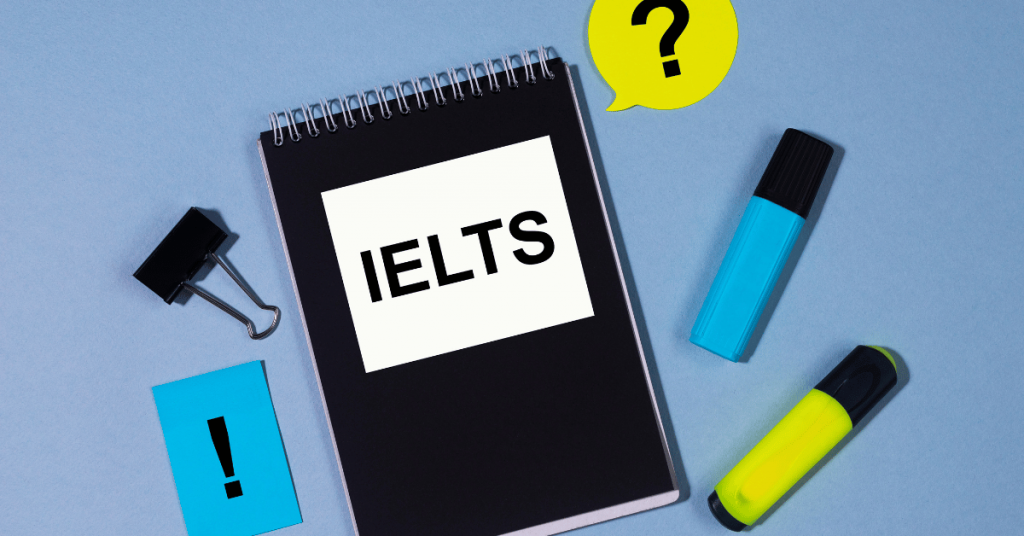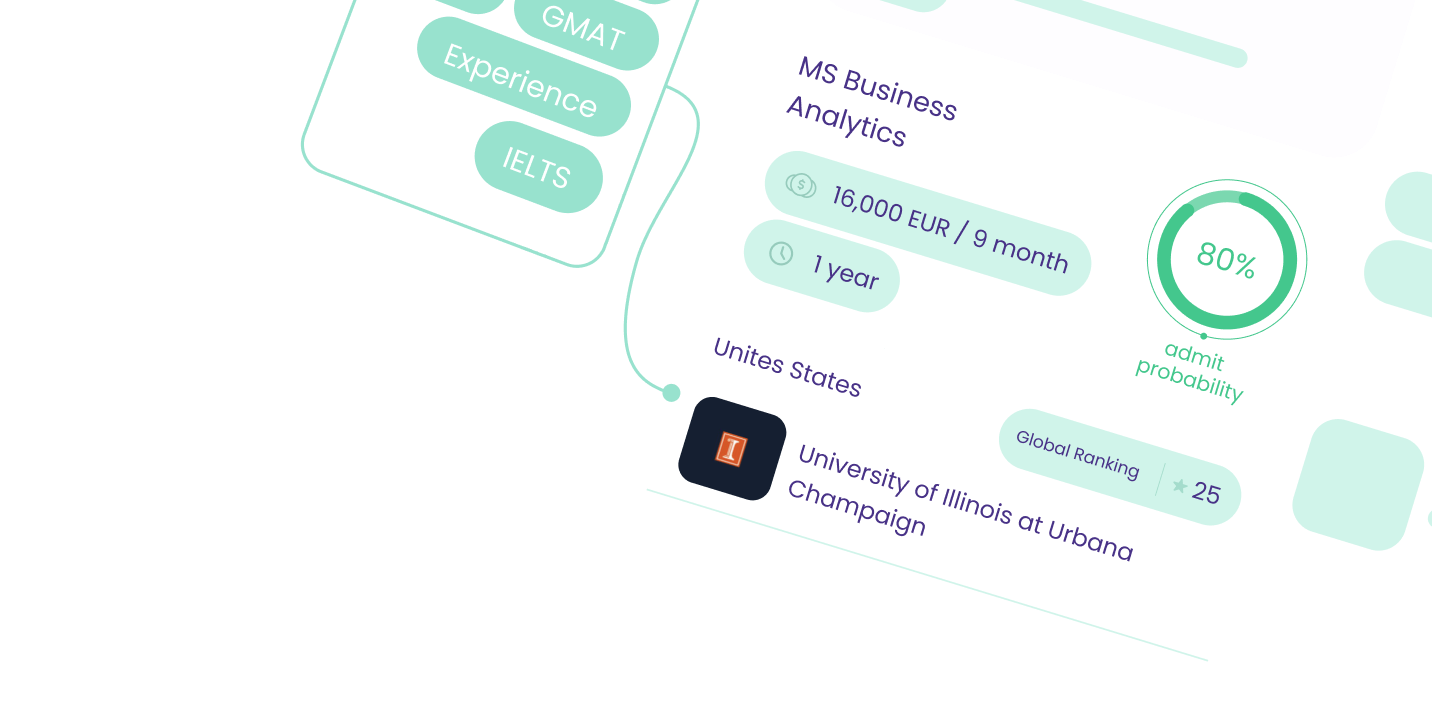IELTS Tips and Strategies for Success – Mastering IELTS with practice test and sample questions
Are you planning to take the IELTS exam? If so, you might be wondering how to prepare for it effectively. With so much IELTS study materials available online, it can be difficult to know where to start.
In this article, we will discuss the most important IELTS tips and strategies for clearing the IELTS. We will discuss the various categories of queries you may encounter and provide IELTS sample question for practice.
Topics we’ll cover include:
- Overview of the IELTS exam and its structure
- Tips for improving your listening, reading, writing, and speaking skills
- Common mistakes to avoid and strategies for staying calm and focused during the exam
By the end, you’ll have a clear understanding of what to expect on the IELTS exam and the skills you need to master to achieve your desired score with proper IELTS tips and strategies. With practice and dedication, you can succeed on the IELTS and take the next step in your academic or professional career.
Your future begins now! Rely on AdmitKard’s proven track record in guiding students to academic excellence worldwide, with a free consultation. Book Now!
Table of Contents
What is IELTS and What Is Its Purpose?

The International English Language Testing System (IELTS) is a standardized test designed to evaluate the English language proficiency of non-native speakers.
It is jointly managed by the British Council, IDP Education, and Cambridge Assessment English. The IELTS exam assesses the four key language skills: listening, reading, writing, and speaking.
The idea behind the IELTS exam is to provide an objective and reliable measure of an individual’s ability to communicate in English.
This is important because English is widely used as a global language, especially in academic and professional settings.
For example, many universities require a minimum IELTS score as part of their admissions process to ensure that students have the language skills necessary to succeed in their courses.
Similarly, employers often require a certain level of English proficiency for job positions that involve communication with customers, clients, or colleagues from different countries.
Experience world-class education with AdmitKard, ensuring success in securing admissions to prestigious international institutions, book a free consultation now!
Breaking Down the Options – Types of IELTS Tests

1. Academic IELTS
The Academic IELTS is primarily intended for students who want to pursue higher education, like a bachelor’s or master’s degree, in an English-speaking country. This version of the exam focuses on assessing your ability to understand and use academic language.
It covers four key skills: listening, reading, writing, and speaking. The Academic IELTS features more complex language and academic-oriented texts, so it can be a bit more challenging than the General Training IELTS.
2. General Training IELTS
The General Training IELTS is for people who want to migrate, work, or study at a non-degree level in an English-speaking country.
This exam also tests your listening, reading, writing, and speaking skills, but it focuses more on everyday English and practical communication skills. The texts and tasks in this version are related to general topics and situations you might encounter in everyday life.
Academic or General Training: Understanding the Distinctions
| Category | Academic IELTS | General Training IELTS |
| Purpose | Higher education (bachelor’s or master’s degree) | Migration, work, or non-degree level study |
| Language Focus | Academic language and complex texts | Everyday English and practical communication skills |
| Listening | Same for both tests | Same for both tests |
| Reading | 3 long, academic-oriented texts | 5 short texts, including advertisements and articles |
| Writing | Describing a graph, chart, or table | Writing a letter (formal, semi-formal, or informal) |
| Writing a discursive essay | Writing a short essay | |
| Speaking | Same for both tests | Same for both tests |
Understanding the IELTS Test Format and How to Ace It

The IELTS exam is designed to assess your English language skills in four main areas: listening, reading, writing, and speaking.
Let’s take a closer look at each of these sections as a part of our IELTS tips and strategies, which constitutes to the time allotted for them, the types of questions you’ll encounter, and the marking system.
Embark on a global learning adventure with personalized assistance from AdmitKard for your international education journey, contact us for a free consultation now!
1. Sections of the test
- Listening – This section tests your ability to understand spoken English in various contexts.
- Reading – This section assesses your ability to read and comprehend different types of texts.
- Writing – In this section, you’ll be required to produce written English in response to specific tasks.
- Speaking – The speaking section evaluates your ability to communicate effectively in English.
2. Time allotted for each section
- Listening – Approximately 30 minutes
- Reading – 60 minutes
- Writing – 60 minutes
- Speaking – 11 to 14 minutes
3. Types of questions
(i) Listening
The listening section consists of 40 questions divided into four parts, each containing 10 questions. You’ll hear various recordings, such as conversations, monologues, and lectures, and you’ll have to answer the questions based on what you hear.
(ii) Reading
The reading section also has 40 questions, which are divided into three sections for the Academic IELTS and five sections for the General Training IELTS. You’ll have to read different types of texts and answer questions about their content, ideas, and vocabulary.
(iii) Writing
In the writing section, you’ll be given two tasks. For Academic IELTS, Task 1 asks you to describe a graph, chart, or table, while Task 2 requires you to write a discursive essay. For General Training IELTS, Task 1 involves writing a letter, and Task 2 is about writing a short essay.
(iv) Speaking
The speaking section is divided into three parts. In Part 1, you’ll be asked general questions about yourself and your experiences. Part 2 is a short presentation where you’ll be given a topic to talk about for 1-2 minutes. In Part 3, you’ll have a discussion with the examiner about more abstract topics related to your presentation in Part 2.
4. Marking system
Each of the four sections (listening, reading, writing, and speaking) is scored separately on a scale from 0 to 9, with 9 being the highest score. Your overall IELTS score is the average of the scores from each section, rounded to the nearest whole or half band.
For listening and reading, your scores are determined by the number of correct answers you provide. In the writing section, your responses are assessed based on task achievement, coherence and cohesion, lexical resource, and grammatical range and accuracy.
In the speaking section, you’ll be evaluated on fluency and coherence, lexical resource, grammatical range and accuracy, and pronunciation.
Dreaming of studying abroad? AdmitKard’s guidance can turn your dreams into admissions success, start with a free consultation now!
Avoiding Common Mistakes and Maintaining Focus

1. Not managing time effectively
One of the biggest mistakes students make during exams is not managing their time effectively. Time management is crucial to finishing the exam within the allotted time. To avoid this mistake, you can break down the exam into smaller sections, allocate time to each section, and stick to the plan.
2. Getting stuck on a question
Another common mistake is getting stuck on a difficult question. When this happens, it’s easy to get frustrated and lose focus. To avoid this mistake, try to answer the easier questions first, and then come back to the difficult ones later. This will help you build confidence and keep your focus on the exam.
3. Not reading the instructions carefully
Instructions are often overlooked, but they’re essential to understanding what’s expected of you. Not reading the instructions carefully can lead to mistakes and lost points. To avoid this mistake, take your time to read the instructions carefully before starting the exam.
4. Neglecting self-care
Taking care of yourself is just as important as studying for the exam. Neglecting self-care can lead to burnout, stress, and decreased performance. To avoid this mistake, make sure you get enough sleep, eat a healthy diet, and exercise regularly. Taking breaks during the exam can also help you relax and refocus.
5. Focusing on the wrong things
During the exam, it’s easy to get distracted by irrelevant thoughts or questions. Focusing on the wrong things can waste time and energy. To avoid this mistake, try to stay present and focused on the task at hand. Taking deep breaths and reminding yourself of your goals can also help you stay on track.
A brighter tomorrow awaits! AdmitKard is your key to unlocking top-notch international academic opportunities, with a free consultation today!
From Average to Exceptional: IELTS Tips and Strategies for Maximum Performance

It’s crucial to have a solid understanding of the exam format and the skills required to succeed. So let’s provide you with some useful IELTS tips and strategies to help you achieve success in the IELTS exam.
1. Reading Section
The reading section of the IELTS exam is designed to test your ability to understand and interpret written texts in English. To succeed in this section, you should focus on the following skills:
(i) Skimming and Scanning
Skimming and scanning are two important techniques that you should master to quickly locate the information you need in a passage. Skimming means quickly reading through the passage to get a general idea of its content. Scanning, on the other hand, means looking for specific information, such as names, dates, or numbers.
(ii) Time Management
The reading section of the exam is timed, so you need to manage your time effectively to make sure you have enough time to answer all the questions. You should practice reading and answering questions quickly, and learn to prioritize your time based on the difficulty of the questions.
(iii) Understanding Question Types
The reading section includes different types of questions, such as multiple-choice, matching, and true/false/not given questions. You should be familiar with these question types and practice answering them to improve your accuracy.
(iv) Vocabulary
To succeed in the reading section of the IELTS exam, you need to have a good understanding of English vocabulary. You should practice reading English texts regularly and learn new words and phrases to improve your vocabulary.
2. Writing Section
The writing section of the IELTS exam is designed to test your ability to write in English. To succeed in this section, you should focus on the following skills:
(i) Task Response
In the writing section of the IELTS exam, you will be given a task to write about. You need to make sure that you address the task and answer the question fully to receive a high score.
(ii) Coherence and Cohesion
Coherence and cohesion are two important aspects of good writing. Coherence means that your writing should be clear and easy to understand, while cohesion means that your writing should be well-organized and easy to follow.
(iii) Grammar and Vocabulary
To succeed in the writing section of the IELTS exam, you need to have a good understanding of English grammar and vocabulary. You should practice writing in English regularly and learn new words and phrases to improve your writing skills.
(iv) Time Management
The writing section of the IELTS exam is timed, so you need to manage your time effectively to make sure you have enough time to write your essay. You should practice writing under timed conditions to improve your speed and accuracy.
3. Listening Section
The listening section of the IELTS exam is designed to test your ability to understand spoken English. To succeed in this section, you should focus on the following skills:
(i) Understanding Accents
The listening section of the IELTS exam includes different accents, such as British, American, Australian, and Canadian. You should practice listening to English spoken in different accents to improve your understanding.
(ii) Listening for Main Ideas
In the listening section of the IELTS exam, you need to listen for the main ideas of a conversation or a talk. You should practice summarizing what you hear to improve your understanding of the main ideas.
(iii) Listening for Details
In addition to understanding the main ideas, you also need to listen for details in the listening section of the IELTS exam. You should practice listening for specific information, such as names, dates, and numbers.
(iv) Time Management
The listening section of the IELTS exam is timed, so you need to manage your time effectively to make sure you have enough time to answer all the questions. You should practice listening to English audio recordings and answering questions under timed conditions to improve your speed and accuracy.
4. Speaking Section
The speaking section of the IELTS exam is designed to test your ability to speak in English. To succeed in this section, you should focus on the following skills:
(i) Fluency and Coherence
Fluency means that you can speak in English smoothly and without hesitation, while coherence means that your ideas are connected and easy to understand. You should practice speaking in English regularly to improve your fluency and coherence.
(ii) Vocabulary
To succeed in the speaking section of the IELTS exam, you need to have a good understanding of English vocabulary. You should practice learning and using new words and phrases in your daily conversations to improve your vocabulary.
(iii) Pronunciation
Pronunciation is an important aspect of good spoken English. You should practice pronouncing English words and phrases correctly to improve your pronunciation.
(iv) Grammatical Accuracy
In the speaking section of the IELTS exam, you need to use correct grammar to communicate your ideas clearly. You should practice using English grammar correctly in your spoken language to improve your grammatical accuracy.
(v) Time Management
The speaking section of the IELTS exam is also timed, so you need to manage your time effectively to make sure you have enough time to speak on all the topics. You should practice speaking on different topics under timed conditions to improve your speed and accuracy.
Explore global opportunities and turn your study abroad dreams into reality with AdmitKard’s free consultation!
The Power of Practice: How Sample Questions Can Help You Succeed on the IELTS

Practicing with sample questions is an essential part of preparing for the IELTS exam. By becoming familiar with the exam format you can increase your chances of achieving a high score and reaching your goals.
1. Familiarity with the Exam Format
It helps you become familiar with the format of the IELTS exam. The more you practice with proper IELTS study materials and IELTS sample questions, the more you’ll know what to expect on test day. You’ll become familiar with the types of questions that are asked, the length of each section, and the overall structure of the exam. This can help reduce test anxiety and improve your confidence.
2. Improving Your Test-Taking Strategies
Practicing with sample questions can also help you develop and refine your test-taking strategies. As you become more familiar with the exam format, you can begin to identify which strategies work best for you.
For example, you may discover that you need to read the questions more carefully, or that you should skip difficult questions and come back to them later. By practicing with IELTS sample questions, you can fine-tune your approach and improve your overall performance on test day.
3. Identifying Your Weaknesses
Another benefit of practicing with sample questions is that it can help you identify your weaknesses. As you work through the questions, you may notice that you struggle with certain types of questions or that you consistently make the same mistakes.
By identifying these weaknesses, you can focus your study efforts on those areas and improve your performance.
4. Building Your Vocabulary and Grammar Skills
The IELTS exam is designed to test your English language skills, including your vocabulary and grammar. By practicing with sample questions, you can improve your language skills and expand your vocabulary.
This can help you express yourself more clearly and effectively in both spoken and written English.
5. Tracking Your Progress
Also, practicing with IELTS sample questions can help you track your progress. You can take practice tests at regular intervals and compare your scores over time.
This can help you identify areas where you’ve improved and areas where you still need to focus your efforts.
Your journey to academic success begins with AdmitKard—trust us for expert guidance and take advantage of our free consultation now!
Ready, Set, Succeed: How to Prepare for the IELTS Exam Day

Preparing for your IELTS exam can be a daunting task, but with the right IELTS tips and strategies, mindset and organisation, you can set yourself up for success.
So here are the essential IELTS tips and strategies you need to take before test day, as well as provide useful tips to help you perform at your best during the exam.
1. Preparing for Test Day
(i) Registration
Start Early: Begin the registration process well in advance of your desired test date, as seats may fill up quickly.
Choose a Test Center: Select a test center that is convenient for you, taking into consideration the distance, transportation options, and accessibility.
Fill Out the Application: Complete the online application form accurately and thoroughly, double-checking your personal information, contact details, and test preferences.
(ii) Required Identification
Valid ID: Ensure you have a valid, government-issued identification document, such as a passport, driver’s license, or national ID card.
Expiration Date: Check the expiration date of your ID to ensure it will be valid on test day.
Name Consistency: Verify that the name on your registration and ID match exactly; any discrepancies may lead to issues on test day.
(iii) What to Bring
Identification: Bring the same ID you used during registration.
Confirmation Email: Print out and carry the confirmation email you received after registering, which contains important test details.
Stationery: Pack pencils, an eraser, and a sharpener for the Writing section.
Water and Snacks: Bring a small bottle of water and snacks to keep your energy levels up during breaks.
(iv) What Not to Bring
- Electronic Devices – Avoid bringing mobile phones, laptops, or any other electronic devices, as they are not allowed in the testing area.
- Valuables – Leave valuable items at home to minimize the risk of loss or theft.
- Study Materials – Do not bring textbooks, notes, or other study materials, as they are not permitted in the test room.
2. Test Day Tips
(i) Arrive Early
- Plan Your Route – Determine the best route to the test center beforehand, taking into account potential traffic or public transportation delays.
- Get a Good Night’s Sleep – Ensure you get sufficient rest the night before the test to stay alert and focused throughout the day.
- Eat a Balanced Breakfast – Fuel your body with a nutritious meal to maintain energy and concentration levels.
(ii) Familiarize Yourself with the Test Center
- Locate the Restrooms – Identify the location of restrooms and water fountains for easy access during breaks.
- Understand the Layout – Understand the layout of the test center, including the testing area, waiting area, and exit points.
- Ask Questions – If you have any questions or concerns, approach the test center staff for assistance.
(iii) Stay Calm
- Practice Relaxation Techniques – Use deep breathing exercises, visualization, or other relaxation techniques to manage stress and anxiety.
- Maintain a Positive Attitude – Remind yourself of your strengths and accomplishments, and believe in your ability to succeed.
- Stay Focused – Concentrate on the task at hand and avoid getting distracted by external factors or other test-takers.
(iv) Time Management
- Pace Yourself – Allocate your time wisely across each section of the test, ensuring you have enough time to read, analyze, and respond to all questions.
- Skim and Scan – Use skimming and scanning techniques to quickly identify essential information in Reading passages.
- Plan Your Writing – Outline your ideas before starting the Writing section to ensure a coherent and well-structured response.
Bottom Line

Mastering the IELTS exam requires both preparation and practice. By following the IELTS tips and strategies provided, and by taking advantage of IELTS practice tests and IELTS sample questions, you can improve your language skills and boost your confidence on exam day.
Remember, success on the IELTS is not just about achieving a high score, but also about improving your language proficiency and opening up new opportunities for yourself. So keep practicing with proper IELTS study materials, fresh IELTS sample question, stay focused, and believe in yourself. With dedication and hard work, you can achieve your goals and succeed in your academic or professional pursuits.
So don’t give up, keep pushing yourself with these top notch IELTS tips and strategies, and always strive for improvement. You’ve got this!
Discover your dream university with AdmitKard and book a free consultation for expert guidance on your academic journey today!


Frequently Asked Questions
What is the best way to prepare for IELTS?
Practice with official IELTS practice tests and focus on improving your weaker areas.
How can I improve my speaking score in IELTS?
Practice speaking with a native speaker or tutor, and use the correct grammar and vocabulary.
How can I manage my time during the IELTS exam?
Make a plan to pace yourself, and don’t spend too much time on one question.





Comments (0)